Publications
Articles, publications, books, tools and multimedia features from the U.S. Institute of Peace provide the latest news, analysis, research findings, practitioner guides and reports, all related to the conflict zones and issues that are at the center of the Institute’s work to prevent and reduce violent conflict.
Libyan Forces Use Rape as Weapon of War, Experts Say
While opposition fighters struggle to tip the balance against Libyan leader Col. Muammar al-Qaddafi’s forces, a growing number of women living in rebel strongholds are allegedly being raped by members of the Libyan military.
Women in Yemen's Protests
Amid the upheavals in Yemen, USIP’s Mary Hope Schwoebel discusses the role of women in the political protests and how it is likely to affect their future status.
Women and Rural Communities in Egypt
Following longtime leader Hosni Mubarak’s departure, USIP’s Manal Omar traveled to Egypt in early April to assess how the recent turmoil there has impacted rural communities and women.
Gender and Peacebuilding in 2011
Kathleen Kuehnast, USIP gender expert and director of USIP's new Gender and Peacebuilding Center of Innovation, looks at what the Center will focus on in 2011 and looks back on gender and peacebuilding in 2010.
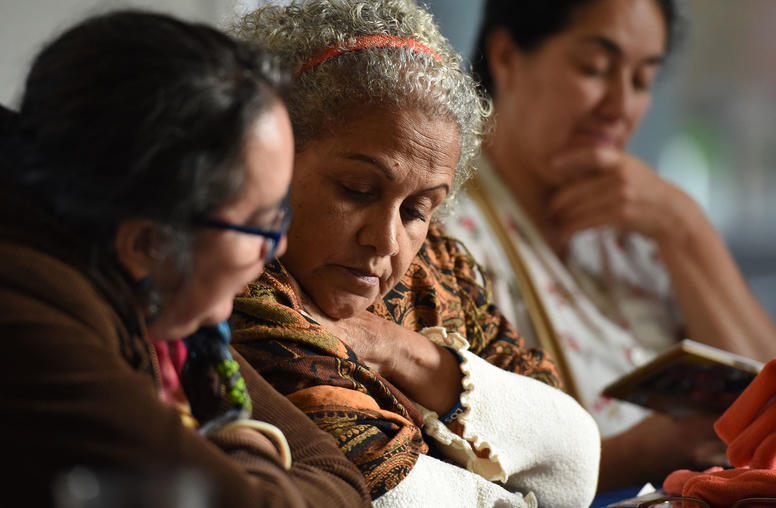
If we want to build peace, we can’t keep women out.
When nations affected by violent conflict try to make peace, the evidence is clear on what works. For a durable peace agreement, women must be included throughout the process. While the U.N. Security Council unanimously endorsed that goal in 2000, women still are excluded from peace processes. Among 504 peace accords signed by 2015, only 27 percent even mentioned women. A U.N. study of 14 peace processes from 2000 to 2010 found that women comprised only 8 percent of negotiators and 3 percent of signatories.
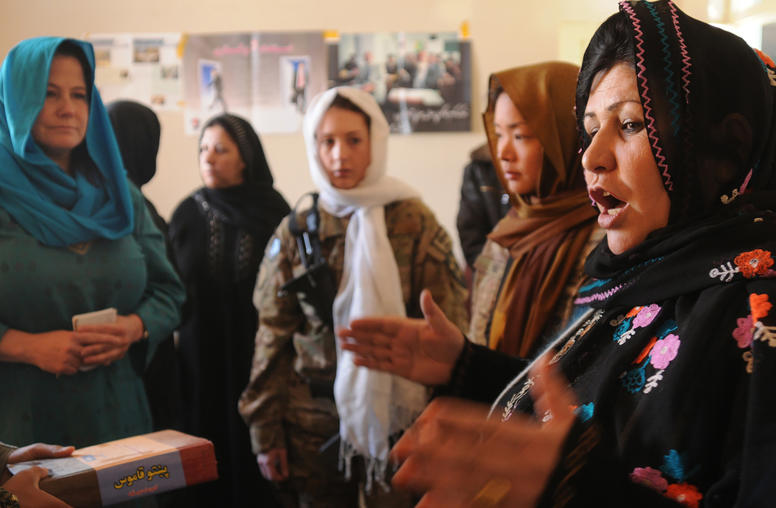
For the Afghan Peace Process to Work, Women Must be Involved
The bottom line is Afghan women want peace and they want to have a say in how it is negotiated. Without women at the negotiation table, a long-term and inclusive peace is dramatically less likely. Indeed, studies show that the inclusion of women in peace negotiations, leads to peace agreements that are representative of the needs of the people they affect and, therefore, more sustainable.
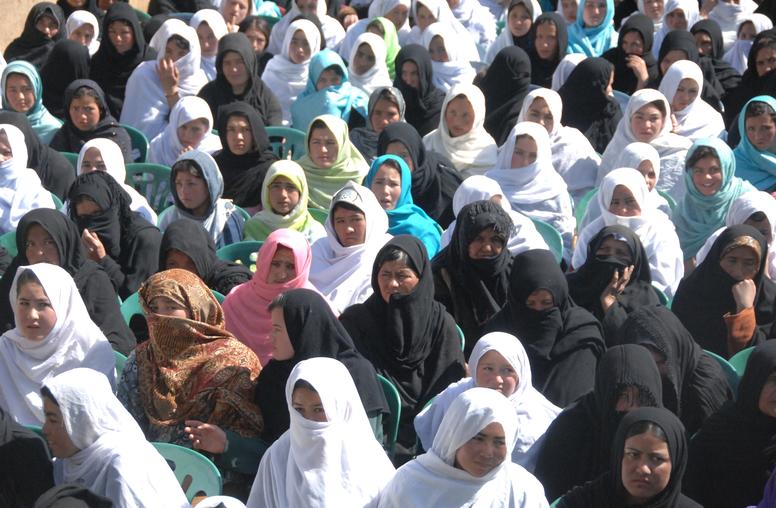
How can Afghans make peace AND protect women? Meet Ayesha Aziz.
After nearly 40 years of war, Afghanistan and the international community are urgently seeking paths for a peace process. But amid the tentative efforts—a three-day ceasefire in June, the peace march across the country by hundreds of Afghans and talks by U.S. envoy Zalmay Khalilzad—a somber question hangs for women and human rights advocates. How can Afghanistan make peace with the Taliban while protecting democracy and women’s rights?
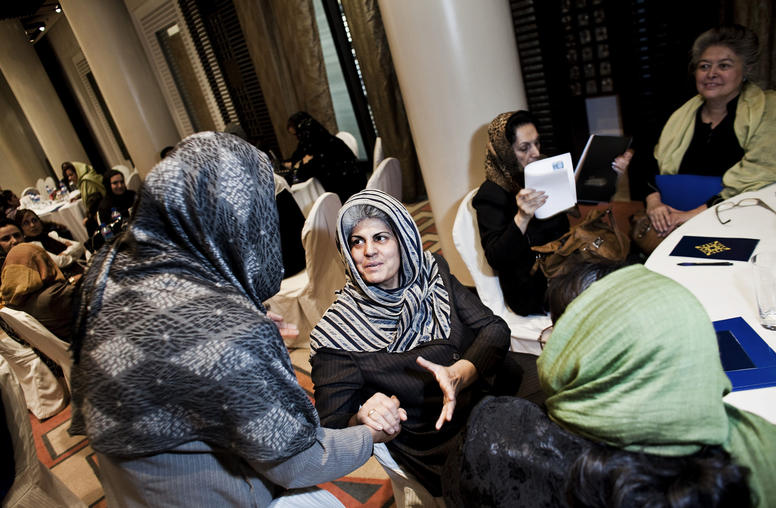
How can we negotiate with the Taliban? Afghan women know.
Afghan political leaders met in Moscow this week with Taliban representatives amid new momentum in diplomatic efforts to end Afghanistan’s war. Like other recent discussions, including those between U.S. envoy Zalmay Khalilzad and Taliban representatives in Qatar, Afghan women remain almost entirely excluded. Yet mostly unnoticed amid the formal diplomacy, Afghan women at their country’s grass roots already have managed negotiations with local Taliban leaders.
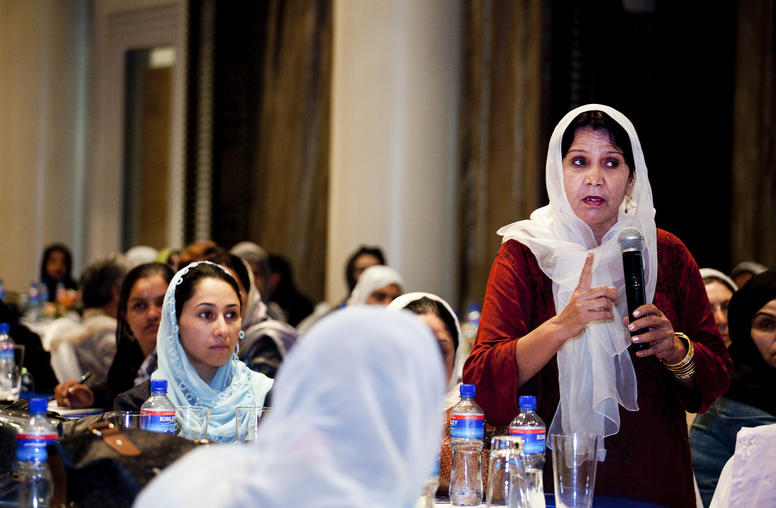
Afghanistan Talks: No Women, No Peace
As talks between the U.S. and the Taliban raise hopes for peace in Afghanistan, the country’s women fear another—and related—possibility: That their hard-won rights to participate in the nation’s political and economic life could again be washed away by the Taliban’s rigid views on gender.
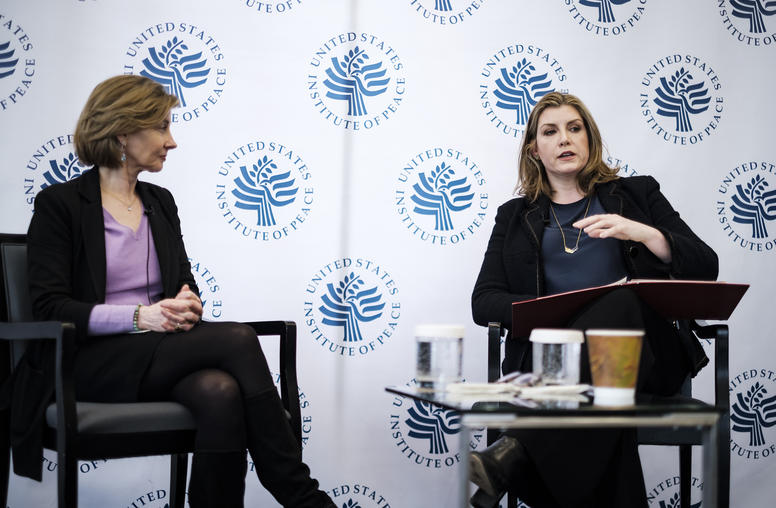
U.K. Secretary Talks History, Equality on International Women’s Day
This year marks a full century since American women won the right to vote, lending particular resonance to 2019’s International Women’s Day. For USIP President Nancy Lindborg and her guest, Penny Mordaunt, the U.K. secretary of state for international development and minister for women and equalities, the March 8 celebration was an ideal moment to reflect on women’s progress in their countries and globally and to highlight remaining obstacles to women’s full participation in society.